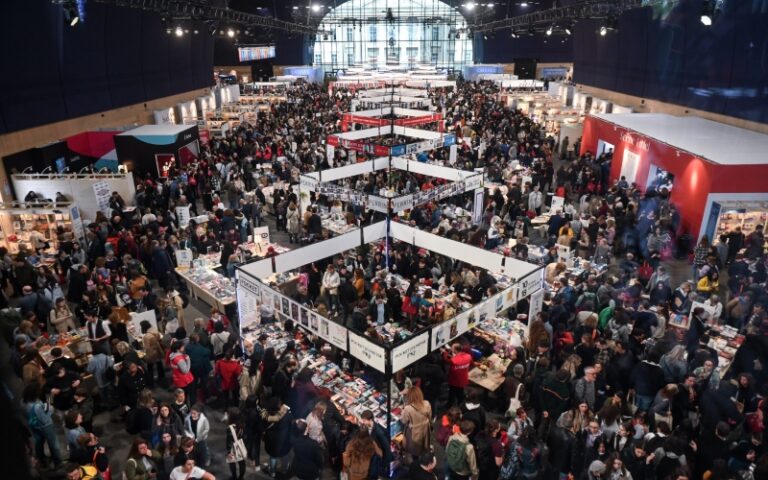FR – Pourquoi les Blancs établis à l’étranger sont-ils appelés expatriés, alors que les Noirs qui travaillent et vivent en dehors de leur pays sont qualifiés d’immigrés ? C’est la question que posait il y a quelques semaines un entrepreneur togolais dans une tribune publiée sur le site Silicon Africa et reprise par le quotidien britannique The Guardian.
Les choses sont claires, pourtant. Un expatrié, du latin ex (« hors de ») et patria (« patrie), c’est quelqu’un qui a quitté son pays ou qui en a été chassé. D’où vient, alors, la distinction évoquée ci-dessus. Aurait-elle un lien avec le statut socioprofessionnel des uns et des autres, les expatriés étant des immigrés très qualifiés ? Ne tiendrait-elle pas plutôt à quelque préjugé tenace ? Sinon, pourquoi les cadres africains de haut niveau qui s’installent en Europe ne sont pas présentés comme des expatriés mais comme des immigrés ?
Immigré, pour autant, n’est pas un gros mot. Dans le droit français, il désigne une personne née étrangère à l’étranger et résidant en France. D’où la confusion, fréquente, entre immigré et étranger. Lorsque l’on naît en France de parents étrangers, on peut demeurer un étranger si on ne sollicite pas la nationalité française à sa majorité, mais on n’est pas un immigré. En revanche, si l’on est né à l’étranger et que l’on a obtenu la nationalité française, on n’est plus un étranger, bien entendu, mais on reste un immigré.
C’est dans ce contexte que revient régulièrement dans le débat l’expression problématique « Français de souche ». Utilisée lors la colonisation pour distinguer les Européens des Nord-Africains, elle a été récupérée par l’extrême droite pour opposer les « vrais » Français aux immigrés ou descendants d’immigrés. On voit bien en quoi cette reconstruction ethnique imaginaire est une menace pour la cohésion de la nation. Ceux qui l’utilisent à des fins politiciennes feignent par ailleurs d’ignorer qu’une très grande partie des Français ont, dans leur arbre généalogique, des ancêtres d’origine étrangère.
Autre notion ambiguë, celle de citoyenneté. Traditionnellement, en France, la qualité de citoyen est liée à la détention de la nationalité. Si cette dernière est une condition nécessaire, elle n’est pas suffisante : il faut aussi jouir de ses droits civils et politiques. Mais le lien entre nationalité et citoyenneté tend à disparaître avec les avancées de la construction européenne. Depuis le traité de Maastricht de 1992, les ressortissants d’un État de l’Union résidant dans un autre État peuvent participer aux élections locales et européennes et s’y faire élire. Ils ont ainsi l’un des éléments essentiels de la citoyenneté, le droit de vote, sans avoir la nationalité du pays dans lequel ils votent.
C’est ainsi que la citoyenneté européenne devient une réalité. Même si, au sein de l’Union, les situations sont contrastées. Dans un pays comme la Lettonie, la citoyenneté est réservée aux personnes qui l’avaient avant 1940 (ainsi qu’à leurs descendants). En sont donc privés Russes, Biélorusses, Ukrainiens arrivés pendant la période soviétique. Ces non citoyens – la mention figure sur leur passeport – n’ont pas le droit de vote, et l’accès à certains emplois de la fonction publique leur est fermé. Mais ils peuvent se rendre sans visa en Russie. Belle consolation…
Israël, pour sa part, encourage l’immigration. À condition que les migrants soient juifs. Plusieurs dizaines de milliers d’entre eux font ainsi chaque année leur alya (« ascension », en hébreu). Les clandestins africains, eux, ne sont pas les bienvenus. Quelque 50 000 Soudanais et Érythréens sont parqués par les autorités dans un quartier de Tel Aviv. Faute de relations diplomatiques avec le Soudan, pour les uns, et parce que l’Érythrée est une des pires dictatures au monde, pour les autres, ils ne peuvent pas être expulsés. Pour désigner ces demandeurs d’asile, un terme revient couramment : « infiltrés ». Le même terme que celui utilisé pour les Palestiniens pénétrant en Israël afin de commettre des attentats.
Pour revenir à la France, confrontée elle aussi à un afflux d’immigrés illégaux sans précédent, les confusions sémantiques sont courantes. Afghans, Syriens, Somaliens, Maghrébins, Ouest-Africains… tous sont classés dans la catégorie des migrants clandestins. Or celui qui fuit la violence, la persécution ou la guerre est un réfugié ou un demandeur d’asile, dans le cas où sa requête pour obtenir le statut de réfugié est en cours d’examen. Un migrant, rappellent les spécialistes, est une personne qui vit depuis plus d’un an hors de son pays de nationalité.
Une chose est sûre : personne ne pense à traiter d’expatriés ces centaines de milliers de gens qui déferlent sur les côtes européennes.
ENG – Why are white people living abroad called expatriates, while black people who work and live outside of their native countries are defined as immigrants? This question was put forward by a Togolese businessman in an opinion column published on the Silicon Africa website, and reported by the British daily newspaper The Guardian.
But things seem relatively clear. An expatriate, from the Latin ex (out of) and patria (homeland), is someone who has left their country, voluntarily or otherwise. So what are the origins of the above distinction? Is there a link with the socio-professional status of different people, defining expatriates as highly qualified immigrants? Or is it rather based on persisting prejudice? Why are high-ranking African executives living in Europe called immigrants, instead of expatriates?
“Immigrant” is not a dirty word, however. French law defines an immigrant as someone born abroad but residing in France, which explains the frequent confusion between the terms “immigrant” and “foreigner”. If someone is born in France to non-French parents, and refuses French nationality upon reaching the age of majority, they will remain a foreigner but cannot be called an immigrant. However, if someone is born abroad and becomes a French citizen, they are of course no longer a foreigner, but remain an immigrant. This is the backdrop to the regular debate surrounding the sensitive expression français de souche, or “pure French person”. It was originally used in the colonial era to distinguish Europeans from North Africans, but has more recently been taken up by the extreme right wing to set “pure” French people apart from immigrants and descendants of immigrants. It is easy to see how this imaginary ethnic reconstruction threatens national cohesion. And those using the term to political ends seem to have forgotten that a significant number of French people have immigrant ancestors in their family trees. Citizenship is another ambiguous notion. Being a French citizen traditionally means holding French nationality, but while this is a necessary condition, it is not enough. Citizens must also enjoy the accompanying civil and political rights. But the link between nationality and citizenship is disappearing with the growth of the European Union. Since the 1992 Treaty of Maastricht, citizens of one Union State residing in another may take part in local and European elections, and stand for election themselves. In this case, they have the essential elements of citizenship – voting rights– without having the nationality of the country in which they vote.
This is how European citizenship becomes a reality, even if there are contrasting situations within the Union. In Latvia, citizenship is reserved for people who had it before 1940, and their descendants. Russians, Belarusians and Ukrainians who arrived during the Soviet era are therefore excluded. These “non-citizens” – as indicated on their passports – are not allowed to vote, nor are they able to work in certain parts of the civil service. But they can travel to Russia without a visa, which may serve as some small consolation…
Israel, on the other hand, encourages immigration, on the condition that the migrants are Jewish. Every year several tens of thousands of them take part in Aliyah (“ascension”, in Hebrew). African illegal immigrants are not welcome, however. Some 50,000 Sudanese and Eritrean people are confined to a neighborhood of Tel Aviv by the authorities. Due to insufficient diplomatic relations with Sudan, and the fact that Eritrea has one of the world’s worst dictatorships, they cannot be deported. A term that crops up a lot to define these asylum seekers is “infiltrators”, which is the same term used to describe Palestinians who cross the Israeli border to commit attacks.
To bring things back to France, a country also faced with an unprecedented influx of illegal immigrants, semantic confusions are frequent. Afghans, Syrians, Somalians, Maghrebis, West Africans and others are all put into the same category of illegal migrants. Yet semantically, someone fleeing violence, persecution or war is a “refugee”, or an “asylum seeker” if their demand for refugee status is being processed. And as the specialists will remind us, a migrant is a person who has lived for more than one year outside of their country of citizenship.
One thing is sure: no one thinks about using the term “expatriates” to define the hundreds of thousands of people arriving on European shores.
[:]






















